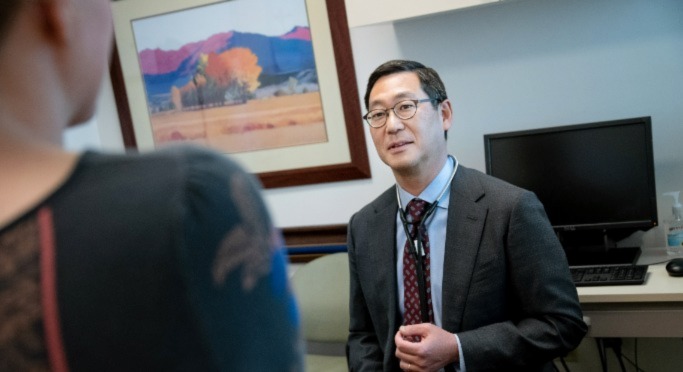What is End-Stage Liver Disease?
End-stage liver disease (ESLD), also called chronic liver failure, refers to irreversible damage to the liver and the way it functions. Chronic liver failure can take months or years to develop. A slow decline in liver function along with severe scarring of the liver, called cirrhosis, is what ultimately leads to liver failure.
The signs of chronic liver failure can be divided into early symptoms and advanced symptoms, and may consist of the following:
Early Symptoms
- Fatigue
- Nausea or vomiting
- Loss of appetite
- Mild abdominal discomfort
Advanced symptoms
- Bruising or bleeding easily
- Confusion or disorientation
- Yellowing of the skin or eyes (jaundice)
- Dark urine
- Severely itchy skin
- Buildup of fluid in the arms, legs or abdomen
Stages of Liver Failure
There are different stages of liver failure, which increasingly affect the liver’s ability to function. These stages include:
1. Inflammation: This is an early stage, in which the liver is enlarged or inflamed.
2. Fibrosis: Scar tissue will begin to replace healthy tissue in the inflamed liver.
3. Cirrhosis: Scar tissue buildup is severe, and has made it difficult for the liver to function normally.
4. End-stage liver disease: Liver function has dramatically deteriorated, and the damage cannot be reversed.
5. Liver cancer: While liver cancer can occur at any stage of liver failure, people with cirrhosis are at an increased risk for developing it.
How is End-Stage Liver Disease Diagnosed?
Diagnosis of liver failure is usually done through a variety of diagnostic tests. Your doctor may recommend you undergo liver blood tests or other blood tests to see how your liver is functioning, as well as imaging tests or a biopsy of the liver.
Treatment Options for End-Stage Liver Disease
Once the liver has reached end-stage liver disease, it has endured too much damage to be healed. Because of this, the only treatment option for many patients is a liver transplant. This involves removing the diseased liver and replacing it with a healthy donor liver.
The liver transplant process first involves meeting certain criteria. In order to meet these criteria, you must have a liver that is not working properly and has damage that is beyond repair. You will also need a pretransplant evaluation which may include certain testing, as well as a financial and insurance evaluation. After these evaluations are complete, the liver transplant selection committee will review your results and will decide if a transplant is right for you. If you are approved you will be put on a waiting list for a healthy donor liver, after which surgery can be performed.
Liver Failure FAQs
Can liver failure be reversed?
How common is liver failure?
How long can someone live with liver failure?
How does liver failure happen?
What are the early signs of liver failure?
What are the symptoms of liver failure?
What causes liver failure?
How do you prevent liver failure?
What are the treatment options for liver failure?
Your South Denver GI Team
At South Denver GI, our team of physicians and advanced practice providers have the expertise to provide you with outstanding care. If you would like to learn more about End-Stage Liver Disease (ESLD) or need to schedule an appointment at our office, contact us today!
View All Our Providers
Contact Us Today
If you would like to learn more about end-stage liver disease or the liver transplant process, please contact our office today to schedule an appointment with one of our providers. Our team of professionals aims to provide each of our patients with the expert care they deserve.
Contact UsRequest Appointment
Click on the Schedule Appointment button to schedule an appointment with your South Denver GI provider online. If you do not wish to use our convenient online scheduling tool, please fill out the form below and our team will contact you shortly.







